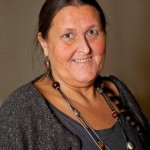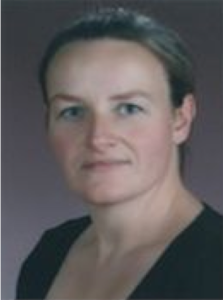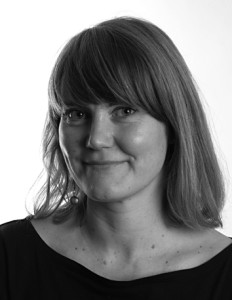Exploring Diversity SEMINAR SERIES
WORKSHOP
“Transnational(ism)” in IMER-research – Networks, boundaries and mobilisation –
In recent years there has been a general increase in empirical research and theoretical engagement with transnationalism and transnational networks. In regard to the field of international migration and ethnic relations, transnationalism has been hotly debated and a central concern for research. Some approaches have focussed on the more manifest, organizational aspects of relations between sending and receiving countries, such as studies of remittances, migration patterns etc. Others have focussed on phenomenological dimensions; transnational social imaginaries, the stretching of lifeworlds in time and in space. Another division is between research following a more traditional Diaspora-approach, exploring the networks and transactions between “mother”- and recipient countries, and research focussing on migrants’ “double consciousness” as a more persistent dimension in the migrant situation. Both approaches include the meaning and the politics of borders and boundaries, but in different ways. Whereas the first approach tends to centre nation and ethnicity as imperative identity-dimensions in transnational mobilisation, the second approach opens other venues for research on transnational imagination and action. This second approach is perhaps more clearly envisioned in Paul Gilroys work on the Black Atlantic. Gilroy’s transnationalism is one that looks beyond ethnicity and nation as identity-construction dimensions, and focuses on the potential transnational solidarity stemming from being reduced to the other within the nation-state framework. If the first, and traditional, transnationalism approach focuses on the positive aspects of national and ethnic identities, the second approach departs from the negative aspects of the very same identities. These different approaches can again be seen to lead to different research focuses and also to different forms of political mobilisation.
This workshop brings together scholars who work in the intersection between transnationalism research and IMER-research. The purpose is to critically discuss what is meant by the terms “transnational” and “transnationalism”, and to provide some theoretical, methodological and empirical guidelines to research. How do we distinguish between “transnational” and “postnational”, how is the conceptualisation of transnational(-ism) linked to debates in globalisation theory, and how do we incorporate material, political and cultural aspects in research on transnationalism and migration?
IMER-Bergen has at present three research projects in the field of transnationalism research. Two of these focus on transnational mobilisation among young adults of ethnic minority background, the third focuses on different forms of transnational relations and mobilities, their spatial logics and the politics of space/place.
Exploring Diversity SEMINAR SERIES
WORKSHOP program
“Transnational(ism)” in IMER-research – Networks, boundaries and mobilisation –
| Tid : | Mandag 17 Desember 2007, 10.00-17.00 |
| Sted : | UiB, Lauritz Meltzers hus, 9 etasje, Seminarrom. |
| 10.00 | Mette Andersson, UiB |
| ” Begrep og forskningsfokus” | |
| 10.30 | Thomas Olesen, University of Aarhus |
| “The Porous Public” | |
| 11.00 | Spørsmål og diskusjon |
| 11.30 | Pause |
| 11.45 | Garbi Schmidt, Danish National Institute of Social Research |
| “Transnational or Universal? Muslim Identity Forming Across National Boundaries” | |
| 12.15 | Spørsmål og diskusjon |
| 12.45 | Lunsj |
| 13.45 | Øivind Fuglerud, UiO |
| “Transnational practises and diasporic identification: Lessons from the Tamil case” | |
| 14.15 | Spørsmål og diskusjon |
| 14.45 | Pause |
| 15.00 | Elisabeth Eide, UiO |
| “Caricatures turning transnational – and landing in national contexts” | |
| 15.30 | Spørsmål og diskusjon |
| 16.00 | Generell diskusjon (slutt 17.00) |
The workshop is organized by Mette Andersson, Associate Professor, Dept. of Sociology , UiB and Knut Hidle, Research Director, Agderforskning
Exploring Diversity SEMINAR SERIES
WORKSHOP
“The Crystallisation of National Identities in Contemporary Europe”
Open IMER/UiB Workshop
This workshop will deal with a trend in many European states which may be referred to with labels such as the ‘crystallisation’ of national identities or neo-nationalism.
The workshop will examine questions like: is there a particular encompassment of globalisation by the European nation-states, generating neo-nationalism or the crystallisation of national identities? Are neo-nationalism and crystallisation inherent results emanating out of emerging European state-forms influenced by globalisation? Is the historical European national diversity generating something specific European which manifests itself in these contemporary phenomena? Or are there, at the level of generation, a restructuration of political universes and modes of citizenship where neo-nationalism and/or crystallisation of national identities are concomitants? If so, which are the key structurating forces? What (new) (world) order would such neo-nationalism and/or crystallisation imply? To whom would it give more power and legitimacy?
Workshop programme :
Wednesday September 17. :
13.15 – 16.30
1. Yngve Lithman: Welcome and Introduction
2. Bruce Kapferer: Globalization and the Nation State.
3. Mette Andersson: The social imaginary of first generation Europeans.
Thursday September 18. :
09.15 – 12.15
1. Andre Gingrich: “National Identity Inc.”: Uncertainties, politics of emotions, and the fading of European visions.
2. Sigalit Ben-Zion: The problem of the crystallization of national identity in Europe in the post-multiculturalism era.
3. Yngve Lithman: Nationalism, Chrystallization: observations from Scandinavia.
13.15 -17.00
1. Christian Joppke: Changes in the conceptual of citizenship in contemporary Europe: Liberalism and the nation.
2. Elisabeth Ivarsflaten: The anti-racism norm in Western European immigration politics: Why we need to consider it and how to measure it.
3.Hakan Sicakkan: Tracing the de-crystallization of European national identities: humanitarian sovereignty sharing, alternative public spaces and invented belongings.
WORKSHOP
Migration in Nordic societies: Recent perspectives
The workshop is organised as a collaboration between IMER Bergen and the Department of Sociology, UiB. It is open for all interested researchers and students.
Program:
09.00: Welcome by Lise Widding Isaksen (Dept. of Sociology, UiB).
09.15: Helle Stenum (Danish Institute for International Studies, Copenhagen): “Bane and Boon, Gains and pains; Dos and Don’ts. Moral economy and flexible citizens in au pair migration”.
09.45: Coffee break.
10.00: Lise Widding Isaksen (Dept. of Sociology, UiB): “Domestic Workers and Political Agency”.
10.30: Mariya Bikova (Dept. of Sociology, UiB): “Au pair Migration Norway – Philippines”.
11.00: Discussion. Discussant: Christine M. Jacobsen (IMER Bergen and Dept. of Social Anthropology, UiB).
12.00 – 13.00: Lunch break.
13.00: Anna Gavanas (Institute for Future Studies, Stockholm): “Migration, in/formalization and the expanding domestic service sector in Sweden”.
13.30: Vera Galindabaeva (European University, St. Petersburg): “The Effects of Rural-Urban Migration on Transformation of Child Care Arrangemenst in Buryat Rural Families in Post-Soviet Russia”.
14.00: Coffee break.
14.15: Synnøve Bendixsen (IMER Bergen and Uni Rokkan Centre): Ethiopian Irregular Migrants’ demonstration in Oslo Cathedral.
14.45 -15.30: Discussion. Discussant: Lise Widding Isaksen (Dept. of Sociology, UiB).
Friday 7 October, 09.00-15.30.
Faculty of Law, Seminar room 1, Magnus Lagabøtesplass 1.
WORKSHOP POSTER
«Mobilitet, moral og migrasjon: familisme – begrepet i norske og italienske kontekster.»
Seminaret tar for seg hvordan middelhavslandenes familisme – begrep konstrueres og erfares i migrasjons-kontekster blant nordmenn i Italia og italienere i Norge. Dagens familisme utfordres både av «post-moderne” endringer i familie-strukturen, slik som lav fertilitet og stigende skilsmisse-rater, og av finanskrise og migrasjon.I Sør-Europa eksisterer lav fertilitet side om side med tradisjonelle omsorgs-organiseringer og parallelt med kontant-tunge velferdsprogrammer og begrenset produksjon av tjenester for de unge og de eldre. Den sentrale oppfatningen i komparative studier av relasjonen mellom familie og velferd er at velferdsstatene baserer politikken på en «tatt-for-gitt» holdning til en kjønnstradisjonell familie-institusjon, og denne kulturelle forutsetningen sementerer de tradisjonelle familie-strukturene. Men i hvilken grad er familiestrukturer og kulturelle og sosiale normer og verdier bundet sammen med idealtypiske regimer og nye migrasjonsmønstre?Nyere forskning viser til at sør-europeiske kvinner drømmer om den nordiske velferdsstaten eller en stat som organiserer familie -og arbeidsbalansen bedre. De vil ha tilgang på flere og bedre offentlige omsorgstjenester. Nordiske velferdsstater framstår som reneste paradiser for kvinner i Italia, og definitivt som et ideal, hevder samfunnsforskere. På den andre siden ser vi at mens italienere drømmer om velferd og arbeid, drømmer nordmenn om mer familieliv. En av de norske informantene i mitt prosjekt sier at hennes drøm er «å få til et italiensk familieliv kombinert med et norsk arbeidsliv». Hvordan er forbindelsen mellom familie-strukturer og familie-verdier? Hvordan er de relatert til mobilitet, moral og migrasjon?
 Lise Widding Isaksen er professor i sosiologi på Universitetet i Bergen. Hun jobber for tiden med prosjektene 1) «Mobilitet, moral og migrasjon: en studie av familiekulturer i Norge og Italia» , 2) «Polish Female Migrants and Their Families: A Study of Care Deficits» og 3) «Welfare Models, Demographic Patterns and Family Strategies in the Context of the Financial Crisis in Spain»
Lise Widding Isaksen er professor i sosiologi på Universitetet i Bergen. Hun jobber for tiden med prosjektene 1) «Mobilitet, moral og migrasjon: en studie av familiekulturer i Norge og Italia» , 2) «Polish Female Migrants and Their Families: A Study of Care Deficits» og 3) «Welfare Models, Demographic Patterns and Family Strategies in the Context of the Financial Crisis in Spain»
Siste publikasjoner:
Lise Widding Isaksen, 2010 (ed): Global Care Work. Gender and Migration in Nordic Societies. Nordic Academic Press, Lund, Sverige
Lise Widding Isaksen (2012) “Transnational Spaces of Care: Migrant Nurses in Norway.” In Social Politics, International Studies in Gender, State and Society, vol. 19, number 1, spring 2012, p.58-78, Oxford University Press, Oxford
“Children Left Behind” i samarbeid med Uma Devi og Arlie R. Hochschild i Hochschild, Arlie R., 2013: «So How’s the Family» and other essays», University of California Press, Berkeley
Communicating Migration Seminar Series IMER Bergen spring and autumn 2014
The IMER seminar series for 2014 will cover how migration and ethnic relations are communicated in every-day encounters, in mass and social media, in politics and in teaching at the universities. Has the way people talk about migration and migrants in different social contexts changed over time, and in which ways has it changed? How does migration theory and research fit in with other topics and theories in the social sciences, and how do results from migration research inform public debate and policy development? Communicating migration will be discussed from various angles in our seminar series on international migration and ethnic relations during spring and autumn 2014. We welcome papers that touch upon this broad theme from different angles. Historical analyses of change over time in regard to politics and public debate, research foci and disciplinary concerns are specifically welcomed. The seminar series will end with a two-day conference in October/November 2014.
The Children of the Revolution: Reflections on Chinese London and how to Theorise these New Forms of Migration
This paper explores some of the London data from a three-city investigation of migration. The other two cities are Beijing and Hong Kong, and in each city we are exploring young (23-39) graduate migrants from the other two cities in order to understand how global mobility features in young professionals’ life and career planning. Little has been written about UK migrants in Hong Kong and Beijing, and the existing literature on Chinese migrants in London is centred on long-term (often depicted as poor and illegal) migrants from Hong Kong. Such studies do not begin to capture the lives of the new young migrants, many of whom are from Mainland Chinese cities, who must navigate new border restrictions favouring the wealthy and the highly talented. The paper will explore some of the challenges to existing migration theory these young urban migrants pose.
Caroline Knowles
 Caroline Knowles is Professor of Sociology and former director of the Centre for Urban and Community Research (CUCR) at Goldsmiths, University of London. She is known for her work with artists and photographers exploring the intersections between art and sociology in urban social research. Following her interest in materials and translocality she has just completed the biography of a pair of flip-flop sandals funded by the Leverhulme Trust with Singapore artist Michael Tan. Flip-Flop: A Journey Through Globalisation’s Backroads will be published in May by Pluto Press. Following her interests in migration she is also currently researching the Beijing, London, Hong Kong circuit travelled by young migrants in these three cities in collaboration with Ho Wing Chung at the City University of Hong Kong. She is the author of many books and papers on cities, ethnicity, migration and mobilities including Hong Kong: Migrant Lives, Landscapes and Journeys (2009) University of Chicago Press with US photographer and Sociologist Douglas Harper.
Caroline Knowles is Professor of Sociology and former director of the Centre for Urban and Community Research (CUCR) at Goldsmiths, University of London. She is known for her work with artists and photographers exploring the intersections between art and sociology in urban social research. Following her interest in materials and translocality she has just completed the biography of a pair of flip-flop sandals funded by the Leverhulme Trust with Singapore artist Michael Tan. Flip-Flop: A Journey Through Globalisation’s Backroads will be published in May by Pluto Press. Following her interests in migration she is also currently researching the Beijing, London, Hong Kong circuit travelled by young migrants in these three cities in collaboration with Ho Wing Chung at the City University of Hong Kong. She is the author of many books and papers on cities, ethnicity, migration and mobilities including Hong Kong: Migrant Lives, Landscapes and Journeys (2009) University of Chicago Press with US photographer and Sociologist Douglas Harper.
Communicating Migration Seminar Series IMER Bergen spring and autumn 2014
The IMER seminar series for 2014 will cover how migration and ethnic relations are communicated in every-day encounters, in mass and social media, in politics and in teaching at the universities. Has the way people talk about migration and migrants in different social contexts changed over time, and in which ways has it changed? How does migration theory and research fit in with other topics and theories in the social sciences, and how do results from migration research inform public debate and policy development? Communicating migration will be discussed from various angles in our seminar series on international migration and ethnic relations during spring and autumn 2014. We welcome papers that touch upon this broad theme from different angles. Historical analyses of change over time in regard to politics and public debate, research foci and disciplinary concerns are specifically welcomed. The seminar series will end with a two-day conference in October/November 2014.
IMER Abroad: PROVIR Seminar – Precarious migrants and access to welfare: Between policy, law and practice
This workshop will discuss the legal and experienced dilemmas found in the encounter between migrants living in a legally precarious situation and the welfare state in which they reside. Participants will present ongoing empirically based research on migrants’ access to welfare in policy, law and practice in various European countries. They will also discuss the particular position of youth and children in vulnerable situations. The program is available here.
Lessons from the past: framing post-war immigration in Germany by historical analogies
In many West European countries, the experience of mass immigration after 1945 was perceived as something basically new and unprecedented. In the lengthy process of coming to terms with the new situation and of developing a self-understanding as countries of immigration and of ethnic pluralism, historical arguments often played an important role. By placing present-day immigration into a historical perspective, by constructing narratives of continuity (and discontinuity) and not least by presenting persuasive historical analogies, historians (and others) introduced arguments that informed the debates of the day and allowed the experiences of immigration and multi-ethnicity to be integrated into (national) narratives of identity. The German case is particularly interesting in this respect, since a tradition of tolerance and successful integration had to be invented in spite of the fresh memories of the Nazi-past that were witness to the contrary.
 Christhard Hoffmann (born 1952 in Luneburg, Germany) is a German historian and professor of modern European history at the University of Bergen. In the period 2007-2013 he was Head of the Department of Archaeology, History, Cultural Studies and Religion.
Christhard Hoffmann (born 1952 in Luneburg, Germany) is a German historian and professor of modern European history at the University of Bergen. In the period 2007-2013 he was Head of the Department of Archaeology, History, Cultural Studies and Religion.
Hoffmann defended in 1986 his doctoral dissertation on German Antiquity historians’ representation of Jews and Judaism in the 19th and 20th centuries [1] at the Technische Universität Berlin, where he also worked as a researcher for many years. From 1994 to 1998 he was a visiting professor at the University of California, Berkeley, and since 1998 he has worked at the University of Bergen.
Hoffmann has an extensive list of publications in the fields of German-Jewish history and cultural history, history of anti-Semitism and migration history.
Communicating Migration Seminar series
The IMER seminar series for 2014 will cover how migration and ethnic relations are communicated in every-day encounters, in mass and social media, in politics and in teaching at the universities. Has the way people talk about migration and migrants in different social contexts changed over time, and in which ways has it changed? How does migration theory and research fit in with other topics and theories in the social sciences, and how do results from migration research inform public debate and policy development?
Communicating migration will be discussed from various angles in our seminar series on international migration and ethnic relations during spring and autumn 2014. We welcome papers that touch upon this broad theme from different angles. Historical analyses of change over time in regard to politics and public debate, research foci and disciplinary concerns are specifically welcomed.
Mistillitens migrasjon: Europeisk sør-nord mobilitet i kjølvannet av krisa
Tema for innlegget er den nye Europeiske sør-nord migrasjonen. Den empiriske analysen er basert på dybdeintervjuer med noen av dem som har reist fra Spania til Norge etter kriseåret 2008. Innlegget vil belyse hvordan sør-nord migrasjonen i kjølvannet av krisa er mer enn en desperat flukt fra arbeidsledighet i hjemlandet. Den vidtrekkende mistilliten til det politiske systemet og følelsen av en dyptgripende håpløshet i hjemlandet er viktige migrasjonsfaktorer i tillegg til jobbmuligheter for dem som kommer til Norge.
Susanne Bygnes (phd) er postdoktor ved universitetet i Bergen. Hun leder det fireårige prosjektet Labour Migration in Uncertain Times: Migration from Spain to Norway after 2008, finansiert av forskningsrådets VAM-program. Hun har publisert en rekke internasjonale artikler på tema som mangfold og likestilling, blant annet Ambivalent Multiculturalism (2012) i tidsskriftet Sociology.
IMER Lunch: Astrid Ouahyb Sundsbø – Social mixing policies: What You Want and What You Get
In the public debate and contemporary social policies in Norway as well as in other countries, concentrations of “immigrants” in certain areas of a city are considered to be unfortunate and something which needs to be fought against (see i.e. Gakkestad 2003; Akerhaug 2012). It is anticipated that spatial concentrations of “immigrants” enforces the social isolation of “immigrants” and triggers criminal activities, among other aspects. This becomes very obvious when a “high percentage of immigrants” in an area serves as basis for referring to that area as a “ghetto” or “insecure” (see i.e. Sæter 2005; Vassenden: 2007; cf. Akerhaug 2012).
In this lunch seminar, the idea of social mixing, which is not just common in the general public debate but also a manifested major urban policy and planning goal (Sæter & Ruud 2005; Huse, Sæter & Aniksdal 2010; cf. Musterd 2005) will be discussed. By using some illustrations both from the academic debate as well as own empirical work, it is shown that it is necessary to be critical about this concept.
It is referred to literature arguing that there is a lack of empirical evidence showing that the residential segregation of “immigrants” has any effect at all, for instance on “integration” and crime (for instance Musterd 2005; Galster 2007; Lees 2008). Furthermore, it is discussed that the imagination of social mixing as an ideal way to tackle the “multicultural challenge” might be founded on a highly problematic understanding of “immigrants“ and their norms and values as inherently “bad” (cf. Eriksen 1996: 51). This is shown by drawing on statements from interviews with members from the majority population residing in Oslo.
Astrid Ouahyb Sundsbø
 Astrid Ouahyb Sundsbø (PhD) is a postdoctoral research fellow at the Georg-Simmel Center for Metropolitan Studies in Berlin. She holds a doctoral degree in sociology from the Humboldt-University of Berlin (2012). From 2012-2014 she worked as a postdoctoral researcher at the Center for a Sustainable University at the University of Hamburg. Her main fields of research compromise: Social inequality, residential segregation in cities, migration and interethnic relations. Her most recent publication is Grenzziehungen in der Stadt. Ethnische Kategorien und die Wahrnehmung und Bewertung von Wohnorten (Springer VS, 2014) where it is discussed whether ethnic boundary making on the side of the majority population could be a possible explanation for the residential concentration of immigrants in Berlin and Oslo.
Astrid Ouahyb Sundsbø (PhD) is a postdoctoral research fellow at the Georg-Simmel Center for Metropolitan Studies in Berlin. She holds a doctoral degree in sociology from the Humboldt-University of Berlin (2012). From 2012-2014 she worked as a postdoctoral researcher at the Center for a Sustainable University at the University of Hamburg. Her main fields of research compromise: Social inequality, residential segregation in cities, migration and interethnic relations. Her most recent publication is Grenzziehungen in der Stadt. Ethnische Kategorien und die Wahrnehmung und Bewertung von Wohnorten (Springer VS, 2014) where it is discussed whether ethnic boundary making on the side of the majority population could be a possible explanation for the residential concentration of immigrants in Berlin and Oslo.
In recent years, a large number of Syrian refugees have settled in Europe. In the media, most of the debate concerning these refugees has been about how they impact their host societies. But how does this large Syrian diaspora impact politics in Syria itself?
For this IMER lunch seminar, we will be joined by Amany Selim and Espen Stokke, PhD candidates at sociology and comparative politics at UiB. They both do research projects where they explore the engagement of Syrian diaspora activists, and how these activists try to make a difference in the homeland. With their work on the Syrian case, they are hoping to contribute to the growing body of literature that attempts to bridge social movement theory and diaspora politics.
In the presentation, Selim and Stokke will give a brief overview of the field: What do we know about the activism of the Syrian diaspora? They will also present their own projects, and what they wish to add to the field.

